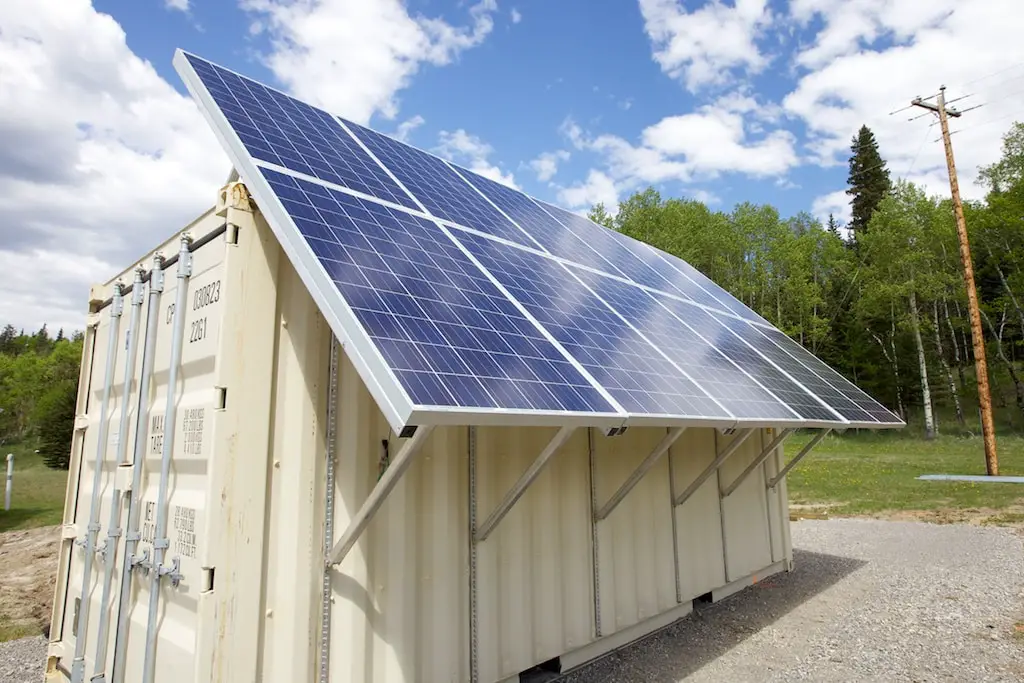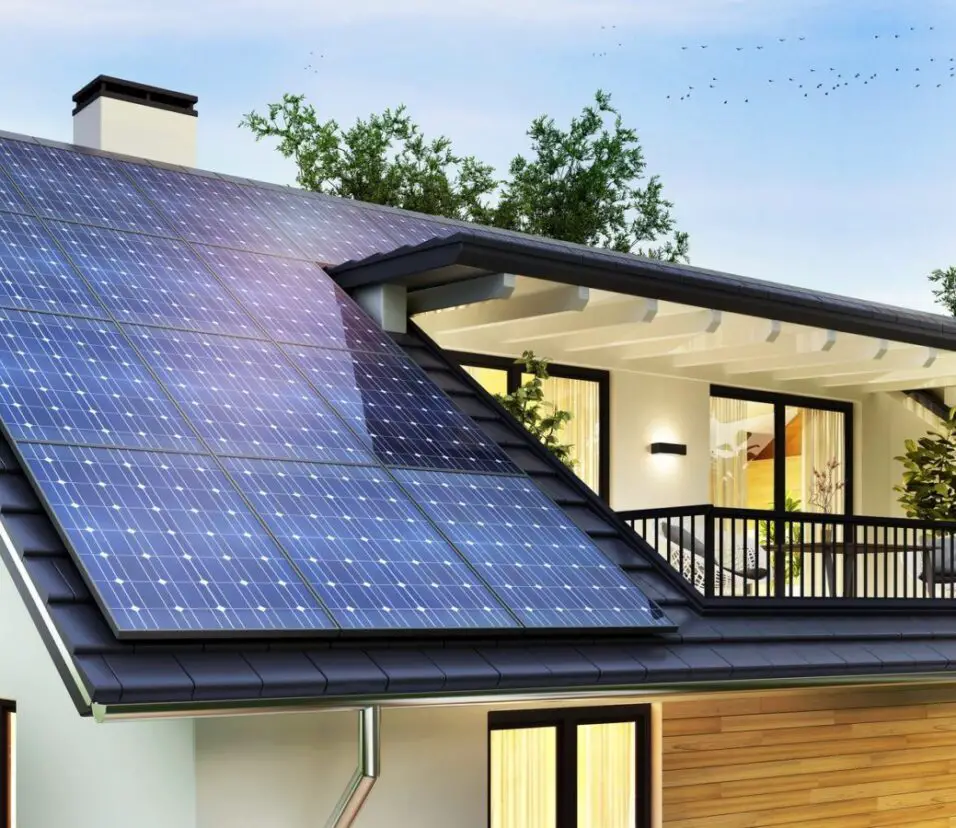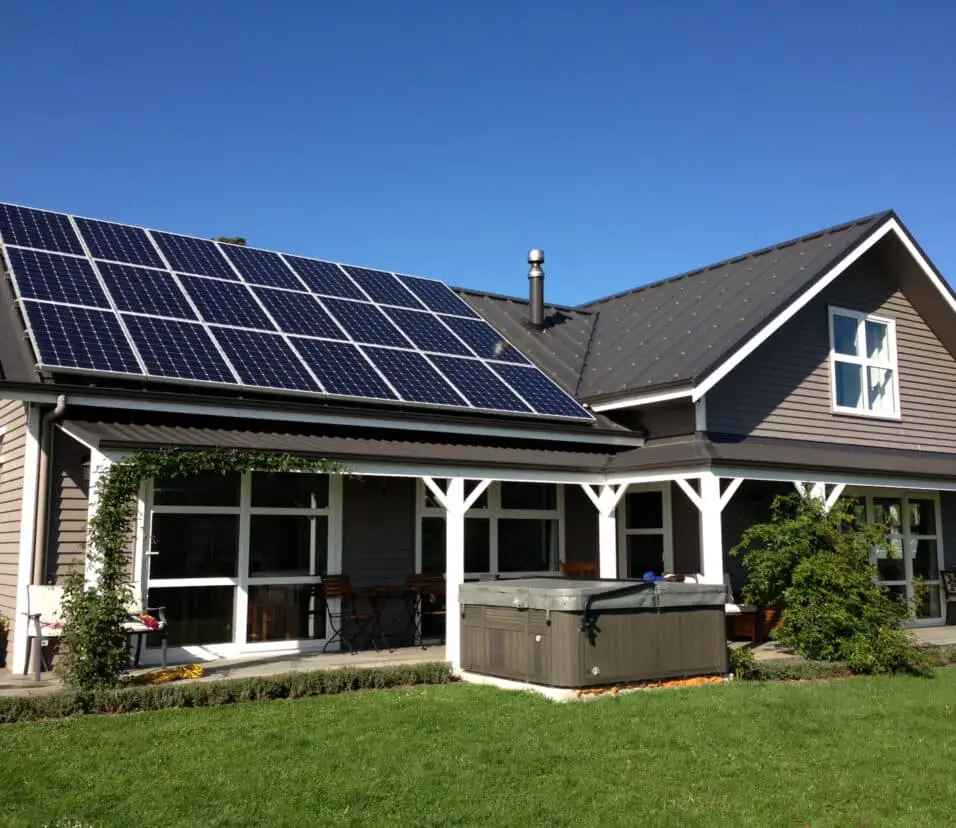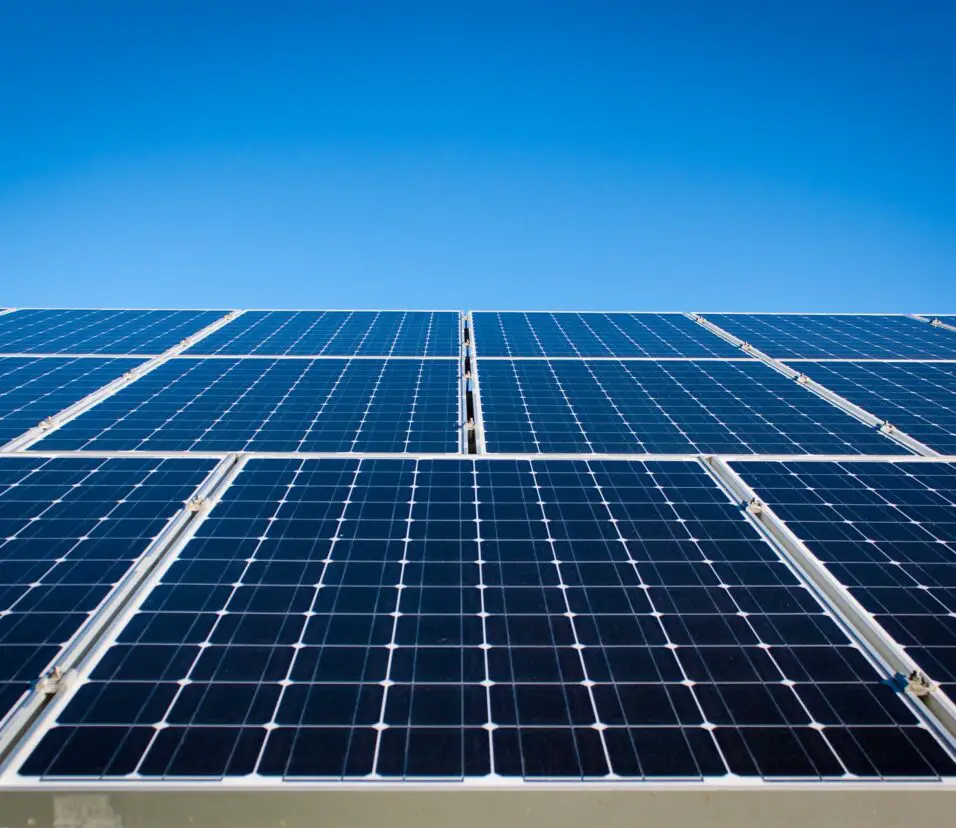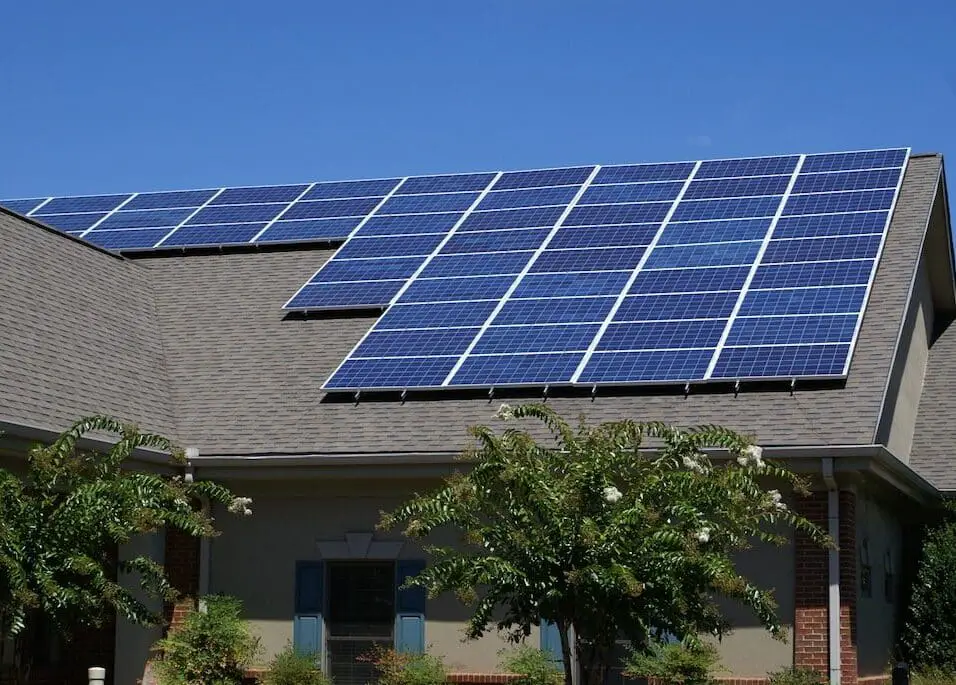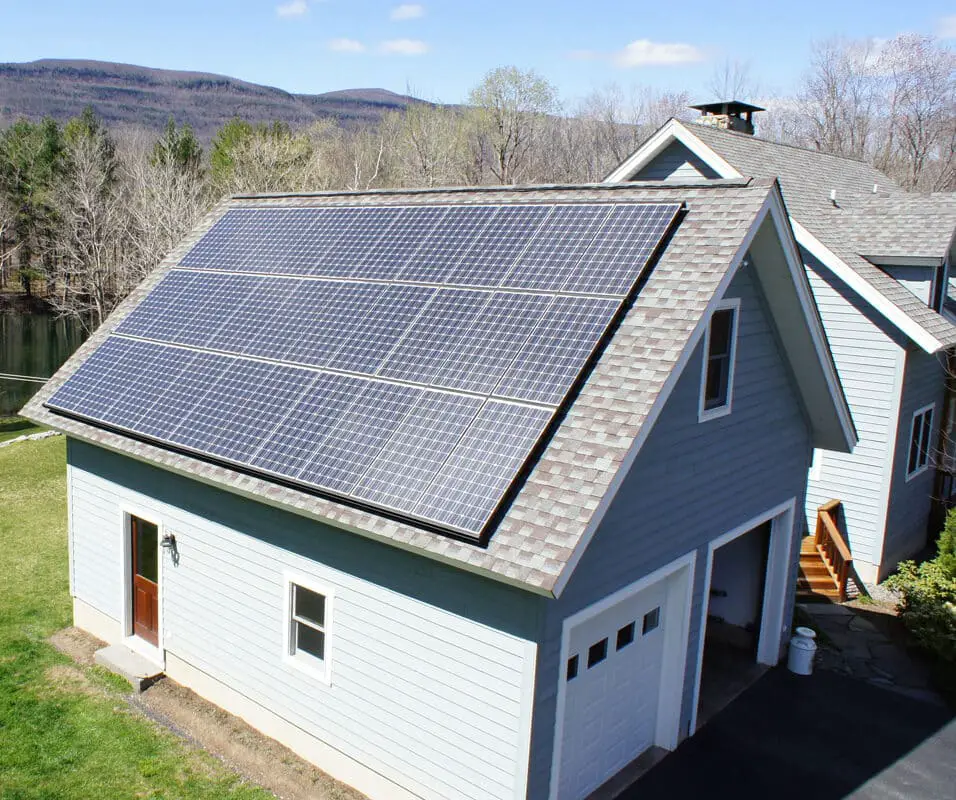Can Solar Panels Power A House During A Power Outage
Introduction
Can Solar Panels Power A House During A Power Outage: Traditionally, when the power grid fails, households are left in the dark, facing the inconvenience of not only lights and appliances not working but also concerns about food spoilage, heating or cooling, and communication disruptions. However, with advancements in solar technology and the integration of energy storage systems, solar panels offer a glimmer of hope in times of crisis. So, let’s unravel the potential of solar energy to not only lighten our homes during the day but also to illuminate our lives when darkness unexpectedly descends.
The feasibility, benefits, and limitations of relying on solar batteries as a reliable backup during blackouts, shedding light on the transformative role they could play in safeguarding households against power disruptions. We will delve into the workings of a solar-powered system with battery storage, examining how it can provide energy autonomy and security when conventional power sources falter.
Furthermore, we will address the potential challenges and considerations for homeowners interested in implementing such a system, making it possible for them to make informed decisions about embracing solar energy for powering their homes during unforeseen emergencies. As the world seeks resilient and sustainable solutions for its energy needs, the ability of solar panels to power a house during a power outage has become an increasingly relevant and captivating topic.
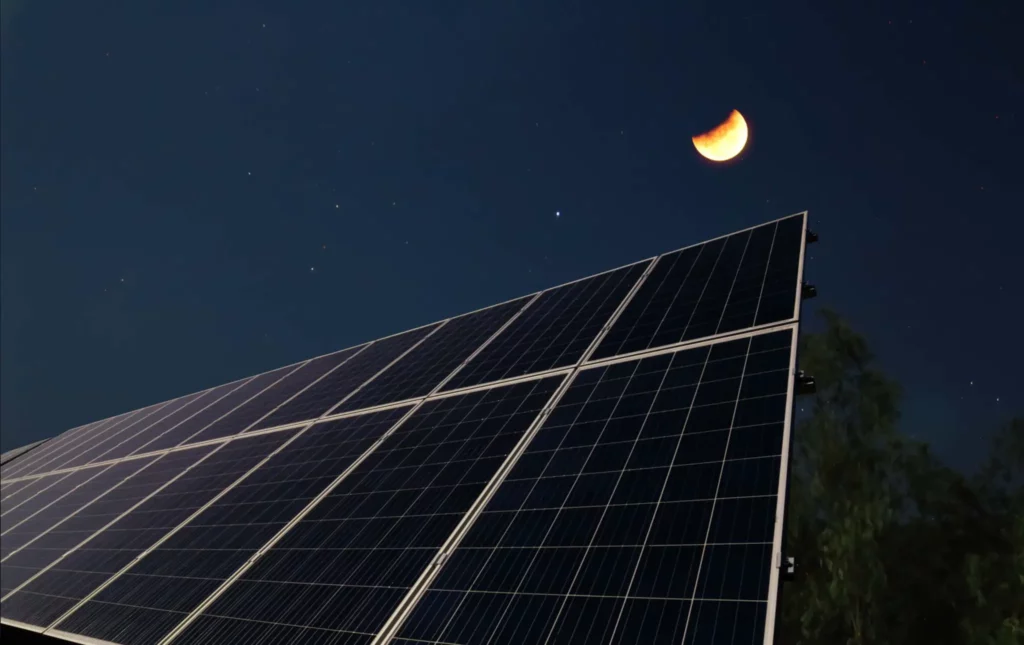
What happens to solar power when batteries are full?
Charge controllers cut power when batteries are full. In many solar power systems, inverters and charge controllers trickle charge and transmit excess charges. Grid power can be restored.
Photovoltaic panels generate power from sunlight. Electricity charges batteries. Solar panels may generate more energy than batteries on sunny days. The charge controller, an essential solar energy system component, regulates energy flow when batteries are full.
Solar panels with surplus energy once the batteries are full are often used for domestic power. Using extra power to run household appliances and devices reduces electricity costs and environmental impact.
If excess solar electricity exceeds home needs, some systems can be connected to the grid. Net metering credits homeowners for excess energy sent back to the grid. They can use grid power without paying more at night or on overcast days when their solar panels aren’t producing enough.
Solar panels that generate more energy than the home can use or export to the grid may be limited if the batteries are full. Overcharging batteries is prevented by limiting solar panel power. Solar energy potential decreases with curtailment, thus homeowners must size their solar systems to match their energy demand.
Do I need a generator if I have solar panels?
Unfortunately, no. Since solar panels don’t backup power, grid-tied solar systems are switched off when the grid goes down. To maintain power during outages, install solar battery storage or a backup generator.
Power usage and demand dictate whether to use a generator with solar panels. If your solar panel system can meet your needs, you may not require a generator. For households with significant energy needs or during peak consumption periods like extreme weather or special events, a generator can supplement solar power.
Solar panels are reliable but need sunlight. Cloudy days can reduce solar energy and power generation. Generators can supply backup power when solar panels fail.
Season and location affect solar panel efficiency. Solar energy may be useful in year-round sunny places. A generator can provide power in regions with short daylight hours during certain seasons. For off-grid or isolated properties, a generator can supplement solar panels and provide reliable backup.
Solar panel optimization requires energy storage. Battery storage devices can store solar energy for low-production times. High-capacity batteries can power your home overnight or in bad weather without a generator. Without energy storage, a generator can supplement solar energy.
How many solar batteries are needed to power a house?
One solar battery is probably enough if you’re looking for resiliency to keep your home going through potential power grid lapses. 8 to 12 solar batteries is around what you’ll need if your goal is self-sufficiency.
The first step in determining the number of solar batteries needed is to evaluate your household’s energy consumption. This involves understanding how much electricity your appliances, lights, and other devices typically use on a daily basis. Reviewing your electricity bills and monitoring energy usage over several days or weeks can provide valuable insights into your average daily energy consumption.
Before calculating the battery capacity required, it’s essential to size your solar panel system correctly. The capacity of your solar panels should be sufficient to meet your household’s energy demand while also considering factors like geographical location, available sunlight, and seasonal variations. A well-sized solar panel system maximizes solar energy production, reducing the need for additional battery storage.
Determining Solar Battery Capacity for Your Energy Needs
The capacity of solar batteries is measured in kilowatt-hours (kWh), which represents the amount of energy a battery can store. To determine the battery capacity needed, consider how many days of autonomy you desire. Autonomy refers to the number of days you want your solar batteries to provide power without relying on solar panel input or grid electricity. A common approach is to aim for a few days of autonomy, typically ranging from one to three days.
When determining the number of solar batteries, it’s wise to round up to ensure you have sufficient capacity to meet unexpected energy demands or system losses. Additionally, incorporating a degree of redundancy ensures the system’s reliability in case of any battery failures.
Calculating the number of solar batteries needed can be a complex task, considering various factors and technologies. Seeking advice from solar energy experts or professional installers can provide valuable insights tailored to your specific energy needs and preferences.
Can solar panels run out of energy?
The solar cell never ‘runs out’ of electrons since they’re always in a circuit, taking energy (voltage potential) from sunshine photons, giving it up in the load, and receiving it again. Solar panels create power by releasing electrons from photovoltaic cells in sunlight. Energy generated powers gadgets or charges batteries. Daytime power requires sunlight.
Solar panels generate electricity mostly from sunlight. Overcast skies and dusk reduce solar panel energy generation. Therefore, solar panels can “run out” of electricity under low sunlight.
Solar panels receive varied quantities of sunlight daily and seasonally. Solar panels generate the greatest electricity at midday under peak sunlight. Morning and afternoon energy output decreases with less direct sunlight. Summer has more daylight than winter, affecting energy production.
Energy storage lets houses store extra solar energy; solar panels need sunlight. Batteries and energy storage can store peak sunlight energy. This stored energy can boost solar power system efficiency and dependability at night and on gloomy days.
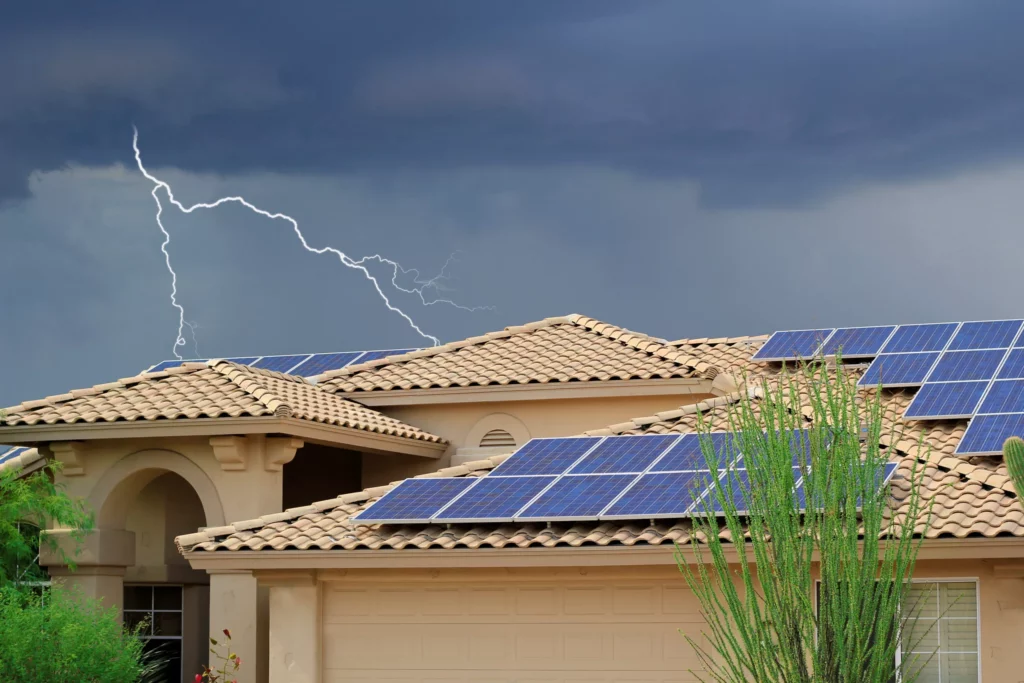
How many hours does solar battery last?
24 hours
Battery storage capacity refers to the amount of electricity your batteries are able to hold. This is often measured in kilowatt-hours or kWh. The average battery is about 10 kWh. In a power outage a fully charged 10 kWh battery should allow you to power your home for 24 hours.
Solar batteries come in different chemistries, each with its own characteristics and lifespan. The most common types of solar batteries include lead-acid, lithium-ion, and saltwater batteries. Among them, lithium-ion batteries are widely regarded for their superior performance and longer lifespan compared to lead-acid batteries. Depending on the specific chemistry, solar batteries can last anywhere from 5 to 20 years or more.
The depth of discharge (DoD) refers to the amount of a battery’s capacity that is used before recharging it. Shallower discharges tend to prolong the battery’s life. For example, a battery discharged to 50% of its capacity daily will generally have a longer lifespan compared to one discharged to 80% daily.
The number of charging and discharging cycles a solar battery undergoes also impacts its lifespan. A charging cycle refers to a full discharge and recharge of the battery’s capacity. For instance, if a battery is discharged to 50% one day and recharged back to 100%, and the same process is repeated the next day, it would count as one cycle. Typically, solar batteries are rated to withstand a specific number of cycles before their capacity significantly diminishes. Lithium-ion batteries generally have a higher cycle life compared to lead-acid batteries.
The ambient temperature in which the solar battery operates also affects its lifespan. Extreme temperatures, both hot and cold, can degrade a battery’s performance and reduce its overall life expectancy. Proper ventilation and temperature regulation are essential to maintain a solar battery’s health and efficiency.
Do solar panels work off moonlight?
The answer is a definite YES, because Moonlight is nothing but reflected Sunlight. Solar pv panels do convert moonlight to electricity. It can be used to power PV cells at a cost of 345:1, meaning, a panel that would normally produce 3450 W at high noon would produce only 10 W of power during the full moon.
Moonlight is a form of reflected sunlight. The moon does not generate its own light but rather reflects the sunlight it receives from the sun. The intensity of moonlight is about 500,000 to 1,000,000 times weaker than direct sunlight, making it much dimmer and less powerful as an energy source.
Solar panels rely on photons (particles of light) from the sun’s rays to excite electrons in the photovoltaic cells, creating an electrical current. The energy from direct sunlight provides the necessary intensity to facilitate this process effectively.
Due to the weak intensity of moonlight, solar panels cannot produce electricity solely from moonlight. During nighttime, when the sun is not visible, solar panels do not generate any significant amount of electricity. The lack of sufficient photons hinders the photovoltaic process, rendering solar panels virtually inactive in the absence of direct sunlight.
While solar panels cannot function off moonlight, advancements in energy storage solutions have addressed the need for electricity during nighttime or periods of low solar production. Solar batteries and energy storage systems allow homeowners to store excess energy generated during the day for use during the night or when solar panels are not actively generating electricity.
These energy storage solutions provide a means to harness the benefits of solar energy even during non-sunlit hours, ensuring continuous power supply and enhancing the overall efficiency of solar energy systems.
Do solar batteries last all night?
Solar batteries can last through the night in most cases, but it will be dependent on your total energy usage and how many batteries you have. For example, many homes may require more than one battery if they have high energy usage needs.
The capacity of a solar battery refers to the amount of energy it can store, measured in kilowatt-hours (kWh). A higher-capacity battery can store more energy and, therefore, has the potential to last longer during the night. Homeowners can choose battery capacities based on their energy needs and the level of energy independence they desire.
The amount of energy a solar battery can supply during the night depends on the household’s energy consumption. If the energy demand is high, the battery’s stored energy may deplete quickly. Understanding and optimizing energy consumption patterns can help maximize the battery’s usability and extend its duration throughout the night.
The amount of energy needed during the night also impacts how long the solar battery can last. Energy consumption varies among households based on factors such as the number of appliances used, heating or cooling requirements, and lighting needs. Efficient energy management and using energy-intensive appliances during the day can contribute to more prolonged battery life during the night.
The state of charge (SoC) of the battery at the beginning of the night significantly influences its performance throughout the night. If the battery is fully charged at the start of the night, it will provide more electricity during the night than if it were only partially charged. Regular monitoring of the battery’s SoC and charging practices is crucial for optimal performance.
Do solar panels work in rain?
Solar panels will still work even when the light is reflected or partially blocked by clouds. Rain actually helps to keep your panels operating efficiently by washing away any dust or dirt.
Solar panels rely on sunlight to produce electricity, and rain, by its nature, reduces the amount of sunlight reaching the panels. Rain clouds block and diffuse sunlight, resulting in lower solar panel output. Consequently, the energy generation capacity of solar panels is reduced during rainy weather.
Despite the reduced direct sunlight, solar panels can still capture and convert diffuse light into electricity. Diffuse light refers to scattered sunlight that penetrates through cloud cover. Though less efficient than direct sunlight, this diffuse light can still contribute to some electricity generation, allowing solar panels to function even during rainy periods.
Rain can have some beneficial effects on solar panels as well. Rainwater can help in cleaning the surface of the panels, washing away dust, dirt, and debris that might have accumulated over time. Cleaner solar panels generally perform better and can recoup some of the lost efficiency due to rain.
The impact of rain on solar panel efficiency can vary based on geographical location. Regions that experience frequent heavy rain or prolonged periods of overcast weather may experience more significant reductions in solar panel output compared to areas with occasional light rain or brief cloudy conditions.
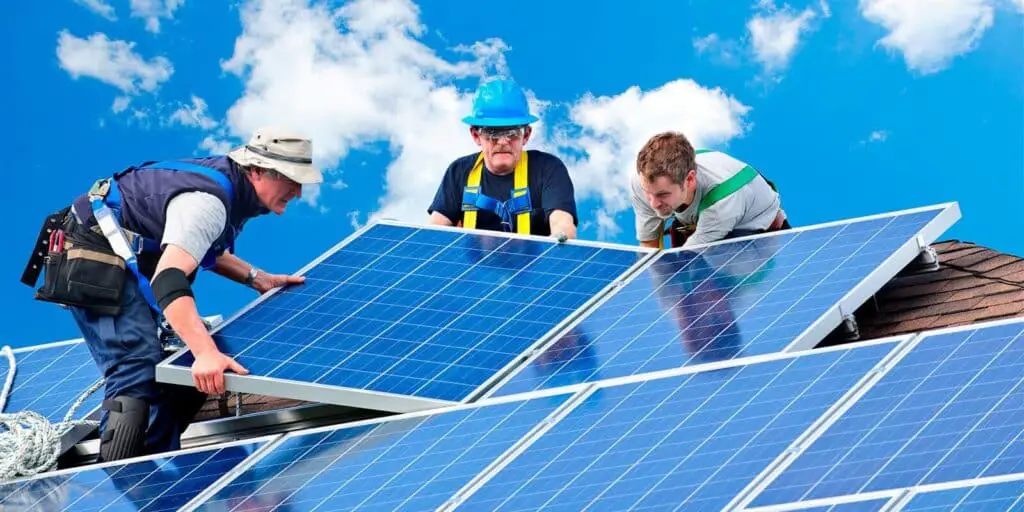
Conclusion
Solar panels now offer homeowners a promising and sustainable way to ensure uninterrupted power supply when conventional electricity grids falter. By harnessing the sun’s abundant energy and storing it for later use, solar-powered systems provide a reliable backup source, reducing dependence on traditional power sources and mitigating the impact of power outages on households. Moreover, the ability of solar panels to power a house during a power outage contributes to energy autonomy and environmental stewardship.
It empowers homeowners to take charge of their energy needs, reduce carbon footprints, and embrace a greener, more sustainable lifestyle. However, despite these remarkable benefits, there are still challenges to consider. The initial investment cost of installing solar panels and energy storage systems can be a barrier for some homeowners.
Additionally, the effectiveness of solar panels during extended periods of overcast weather may vary, impacting their ability to provide continuous power. A house during a power outage under the right conditions, a comprehensive approach is necessary to maximize their effectiveness. Combining solar energy with efficient battery storage and energy management strategies can significantly improve the ability to weather blackouts and increase energy resilience.



